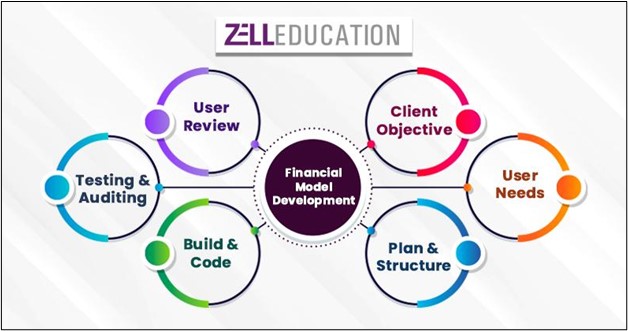Top 5 Benefits of Financial Modelling Course
Financial modelling plays a significant part in running a successful business with the right decision-making processes. The procedure of financial modelling consists of forecasting a company’s financial performance by considering factors like demand, supply, pricing, operational cost, past revenue, customer behaviour, etc and then combining it with the calculations of the effect. Financial modelling typically considers variables like the company’s past performance, growth, and risk assumptions to estimate its valuation or compare it with industry peers.
Let’s learn more about financial modelling and the benefits of doing a financial modelling course in today’s business landscape.
What is a Financial modelling course?
Financial modelling can be a short or an intensive course based on the course you choose. You can pursue financial modelling in the form of a diploma degree, undergraduate course or postgraduate course depending on your level of interest. The duration of this course also varies as per the type of course you choose.
Now coming to what financial modelling is all about, the answer is – it is the first step to financial planning. Pursuing a course in financial modelling equips you with the skills required for entry-level jobs in Financial Planning and Analysis, Equity Research, Investment Banking, Credit Research, and many more. A standard financial modelling course focuses on fundamental finance skills and concepts, including spreadsheet software (MS Excel), financial maths, financial statement analysis, project finance, equity modelling and corporate finance.
Advantages of financial modelling course
Financial modelling is an emerging profession that is gaining popularity with every passing day. However, if you are not sure if this profession is worth investing all the time and effort into, then here’s a glimpse into the benefits of financial modelling and why is it important for every business:
1. Managing Risks Better
Analysing a new idea or a potential project through financial modelling lowers the chances of a company running into financial risks. Financial modelling helps executives estimate the consequences of business decisions, such as the impact of marketing campaigns, the effects of price changes, or the costs involved in entering a new market.
2. Enhances The Understanding Of The Business
One of the most significant benefits of financial modelling is that it gives an in-depth understanding of a business and its operations. Financial modelling helps companies understand their business, including the internal and external factors that impact it, making them ready to deal with challenges and uncertainties.
3. Analysing The Overall Financial Performance
Financial modelling, as a process, involves a complete review of a company’s financial performance by comparing the actual results with the estimated budget. Such periodic reviews are crucial for businesses and give a clear picture of a company’s financial health while allowing business owners to strategize for maximum profit.
4. Clarity On Fund Requirement
The benefits of financial modelling include better clarity into a company’s fund requirements. In other words, financial modelling helps a business determine the cash inflow it needs to keep operations running and the source for such funding. It helps a company decide the debt it can take and the equity financing strategies for the same.
5. Better Business Valuation
Financial modelling helps companies know their true worth by determining the free cash flow they can expect to accrue at different times. Therefore, firms can better understand their valuation when selling stakes to private equity funds, investment bankers and other third-party investors.
Businesses use financial modelling almost regularly to make strategic decisions. Financial models give companies the ‘what if’ information; if they take a step, then what is likely to occur? While financial modelling is not the answer to every financial problem a business faces, it is quite an effective tool to help companies navigate critical areas such as raising and allocating capital, budgeting, forecasting and estimating business valuation.
We hope that with this detailed article on Financial Modelling you have received an in-depth understanding of what the profession looks like and what to expect. If you are interested in getting into this exciting and equally dynamic field, then pursuing a CFA degree post this course is the direction to take. To know more about the Chartered Financial Analyst course click on the WhatsApp icon at the side of this blog and get in touch with our experts directly.
FAQs
What are the benefits and uses of financial modelling?
The biggest benefit of financial modelling is it gives an in-depth understanding of the business and minimises project-associated risks.
Are financial modelling courses worth it?
Financial modelling courses when complemented with a Chartered Financial Analyst degree boost your career prospects to an international level and open doors to the best opportunities. This surely makes financial modelling courses worth it.
What is the average salary of a financial modelling expert?
The average salary of a financial modelling expert starts from 3.5 LPA and levels up to 7.5 LPA depending on the profile, skills and experience the professional has.










